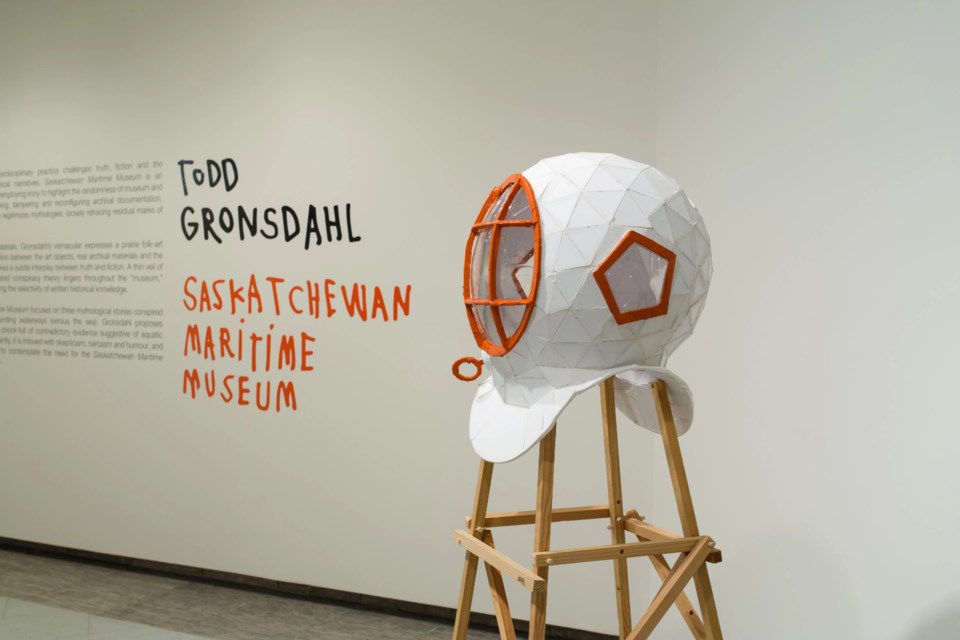MOOSE JAW — Todd Gronsdahl built the Saskatchewan Maritime Museum to explore an alternate history that is part of his opposition to what he calls the official narrative.
The old saying is that history is written by the victor, and Gronsdahl finds his inspiration in those who have been forgotten or deliberately left out.
“I like to talk about all these characters that got left behind because it wasn’t convenient or it wasn’t as cleanly written with them included,” Gronsdahl said. “A lot of history is written to underpin a narrative that will be useful to … the governing body of the country, if that makes sense.”
To that end, he made his main character Métis — and called him Charles Gaspar.
“If we’re building a wall of history, the grout cracks is where I find all the actual interesting things.”
Gaspar is a fictional industrialist/investor/explorer who embodies every interesting thing about Saskatchewan, said Gronsdahl. Part of his personality is the kind of future-oriented optimism that Tommy Douglas famously brought to Saskatchewan in the 40s and 50s.
“I just tie every interesting thing about Saskatchewan to him, like the Weyburn LSD experiments and the socialist politics, and then the alt-quasi-religious beliefs that large groups of Saskatchewanians have … He’s sort of the hub of a lot of what’s happening in my museum.”
Gronsdahl grew up in Saskatoon, and has repeatedly returned. However, he loves the coast and the ocean. He’s lived in Vancouver (several times), the Cayman Islands, and Cobble Hill on Vancouver Island.
“I always had this teeter-totter experience,” he explained, “to the coast then back home, to the ocean again and then back home.”
He explores this dichotomy in a fantastical way, imagining the Canadian government, for example, enlisting Gaspar’s help to prepare for a possible WWII U-boat attack on Saskatoon from the ΒιΆΉΚΣΖ΅ Saskatchewan River, or Gaspar exploring the coastlines of Saskatchewan’s waterways looking for new medicines or plants with psychoactive properties.
Gronsdahl explored the University Archives & Special Collections area of the University of Saskatchewan to find unusual stories from the province’s history — and reimagined them through the lens of maritime myth. The twist on real events and people in Saskatchewan’s history lends an ironic credence to the outlandish claims and ideas of the Maritime Museum.
Interwoven with the kind of subversive, provocative questions Gronsdahl enjoys asking is a mischievous sense of humour he credits with bringing people back to his exhibitions for more.
He likes for his audience to feel as if they’re in on the joke, he said, as if together artist and audience are exploring this alternate version of Canadian history.




